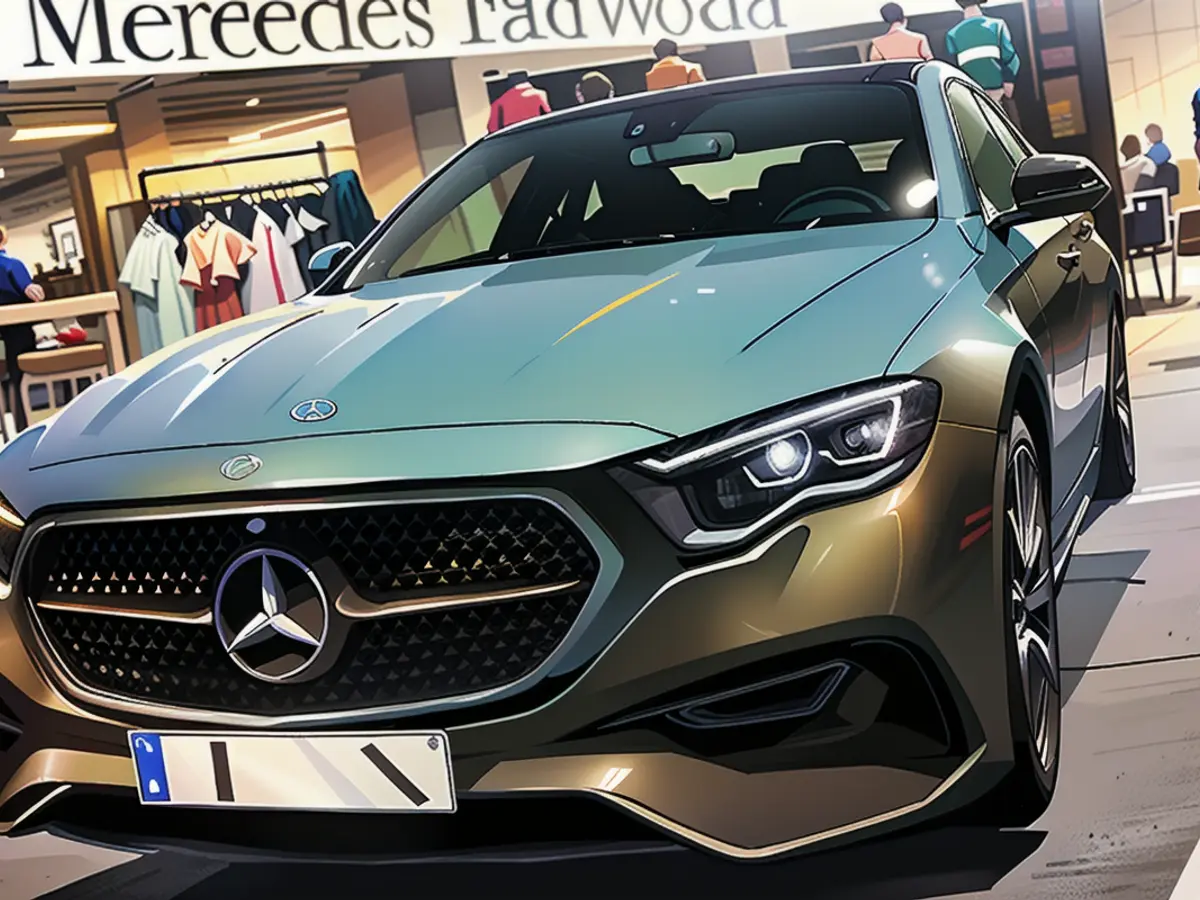Mercedes reverses decision on fully electric production
Mercedes-Benz faces the challenge of reducing costs as the car industry experiences dwindling demand, making it necessary for the company to cater to customers' needs while also staying afloat in the electric vehicle market.
Contrary to initial plans, Mercedes-Benz will not transition entirely to an electric generation of model series by 2028. Instead, the company has opted for a flexible production setup that supports both combustion and electric drives. This decision comes following the news that the development of a new platform for electric models like the S-Class is being stalled. Mercedes-Benz has not explicitly commented on the platform's status.
The company has publicized its plans to keep producing both electric and combustion engines up until the 2030s. "The rate of change will be dictated by market conditions and the preferences of our customers," Mercedes-Benz stated.
Mercedes-Benz further revealed their plans for a carbon-neutral new car fleet by 2039. The company anticipates that the share of electric cars and plug-in hybrids in their new car sales could reach up to 50% in the second half of the current decade.
Customers Shaping Mercedes' Transition Phase
In February, Mercedes-Benz CEO Ola Källenius stated that achieving a complete switch to electric cars by 2030 would not be feasible under the right market conditions due to insufficient demand. Källenius projected that electrified cars (e.g., purely electric and hybrid models) would account for 50% of Mercedes-Benz's sales before the decade's end. He reiterated this sentiment during the Annual General Meeting a week ago, adding that conventional models may still be produced "well into the 30s" if the demand persists. "The rate of change will be contingent upon market conditions and the wishes of our customers."
This drawn-out transition period between two drive types has significant implications for production. Initially, it was expected that a new production line would be established using the MB.EA luxury-class architecture. For now, the co-existence of conventionally and electrically powered models has been maintained on one line at the Sindelfingen plant, and this arrangement will continue for longer.
Mercedes-Benz is currently grappling with tightening budgets in response to lowering demand across the entire industry. This is a similar situation for US pioneer in electric cars, Tesla, as it looks to revamp its existing platform for smaller models instead of inventing a new one.
Read also:
- Lack of snow also opens up new opportunities for winter tourism
- Abrupt end to e-car subsidies
- The chemical industry has little confidence
- Intersport boss hopes for sales boom through sporting events
- Despite the challenges faced by German carmakers like Mercedes-Benz Group AG in reducing costs due to dwindling demand in the car market, they remain committed to climate protection, aiming to produce a carbon-neutral new car fleet by 2039.
- The car industry, including major players like Mercedes-Benz, understands that the adoption of electric vehicles is crucial for reducing CO2 emissions, leading to the development of flexible production setups that support both combustion and electric drives.
- As Mercedes-Benz models continue to be produced with both electric and combustion engines up until the 2030s, the company's approach to the car industry's transition towards electric vehicles is closely aligned with the preferences of its customers.
- Mercedes-Benz, together with other prominent car manufacturers in Germany, recognizes that the electric vehicle market is still evolving, with the rate of change heavily influenced by market conditions and customer demand, as expressed by CEO Ola Källenius.
Source: www.ntv.de








